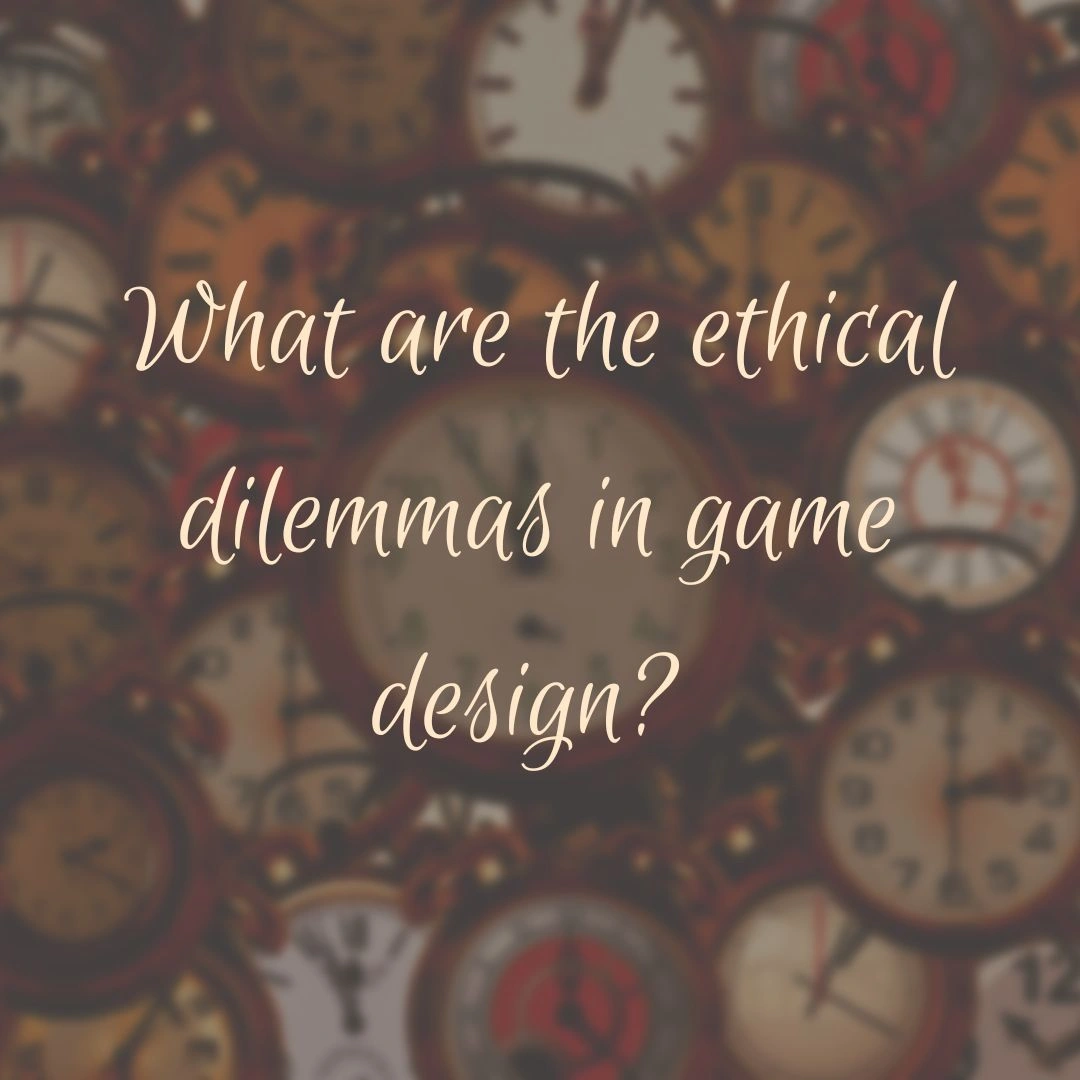
Update: This article was last updated on 16th January 2026 to reflect the accuracy and up-to-date information on the page.
In a matter of mere years, the gaming industry has expanded dramatically. It‘s today a huge segment of our society, drawing millions of gamers around the globe with hip experiences and sophisticated technology. In the upcoming years, the gaming industry will encounter some setbacks, but there‘s also an optimistic potential for good changes, particularly in game design ethics, bringing hope and optimism to gaming enthusiasts and professionals alike. This promise of good transformation is a source of hope, motivating gaming experts and gamers alike to anticipate a better tomorrow.
Ethical dilemmas in game design have become increasingly important as the industry evolves and reaches a wider audience. One giant problem is particularly prominent, threatening the very foundation of the gaming universe. But with the promise of change on the horizon and an emphasis on the ethics of game design, the industry can expand and thrive, much like the intelligent solutions of the Route4Me API that assist with navigation in the contemporary world.
This allows game designers to develop accessibility features, such as personalized navigation assistance or game experiences for individuals with disabilities. Through the use of the API, gaming is made more open and accessible for a broader pool of players.
Developers of games encounter numerous issues when developing a game, which can be challenging and demotivate them. They spend a great deal of time looking for solutions on their computers to correct errors or design faults.
It takes a lot of trouble making something simple, such as a wooden door. Game developers need to consider so many things, including how it opens, appears, and sounds. Ethical game design helps ensure that the players use the door without too much thinking. Making a door that functions well but doesn‘t catch attention is actually a very crucial aspect of creating a game.
But there’s more to it than just that! Let’s discuss the basics before jumping to the next level.
1. What is an Ethical Dilemma?
An ethical dilemma occurs when you need to make a decision, but all the choices you have are against what is right. It’s like being in a situation where whatever you do, you’re not doing something that abides by the rules of what is morally right, which is also a central issue in ethical dilemmas in game design and the ethics of game design.
Recommended Reading: AI Ethics And It’s Importance
2. What are the ethical dilemmas in the gaming industry?
Ethical dilemmas in game design industries are important as they influence how games can easily impact kids and teens. Games can easily impact kids and teens. To manage this, rules must provide ratings appropriate for various ages, measures for parents to regulate, and measures to prevent unhealthy behaviors that attempt to persuade children to purchase a great deal of goods within games. Many players end up feeling isolated and disconnected from the gaming world because they have to see themselves reflected, so the gaming process is less fun and authentic to them.
Recommended reading: Game Development Communities: Connecting with Fellow Young Game Developers
3. What are the ethical dilemmas in game design?

1. Problem of Inclusivity The Ever-Persistent
A key challenge facing the gaming industry in 2026 is the feeling of exclusion experienced by certain groups. Even though the gaming world has improved in some ways, there’s still a lot of work to do to ensure that different kinds of people are represented. The urgency of this issue is clear, and it’s crucial for the gaming industry to prioritize ethical game designand inclusivity in game development.
There must be greater representation of various genders, ethnicities, and abilities within games and among the individuals who create them. Players feel excluded and not a part of the gaming community, and therefore have less fun and enjoyment with the experience. Diverse storytelling matters, and game design ethics should make sure everyone feels represented while playing games.
Recommended reading: The Rise of AI Content Creators: How Machines are Shaping Storytelling
2. Gender Disparities and Stereotypes the long lasting problem
Ethical game design would be able to help fix the issues females who play games are usually faced with, like being treated poorly, discriminated against, or excluded. They have to put up with bad behavior among gaming groups, so gaming is less fun and bars others from participation. Furthermore, the presentation of females as game characters makes the situation worse by reinforcing biased notions and objectifying them rather than treating them on the same level as males.
Recommended Reading: Shadow AI: Balancing Innovation and Security in the Age of AI
3. Problems with Presenting Other Cultures
The morality of game creation is compromised when games at times depict various cultures in a manner that isn’t respectful or equitable. They could utilize stereotypes or borrow things from a culture without knowing about it, which reduces the richness and diversity of our world. This could render players who belong to those cultures excluded and keep games from being a means through which people can learn about and appreciate others’ cultures.
Recommended reading:Develop Game Development and Entrepreneurial Skills by Moonpreneur
4. Making Games Accessible for Everyone
Despite some progress being made, the world of gaming continues to fail to produce games that are accessible to all, including individuals with disabilities. Game design ethics focus on being inclusive, yet some games are not compatible with assistive technology that provides accommodations for players with disabilities, and it becomes difficult or even impossible for these individuals to play. By failing to address these issues, the gaming community is preventing many potential gamers from getting the maximum enjoyment out of this form of entertainment.
Recommended reading: Engaging Geography Lessons Games for Kids to Learn the World
5. Having a Variety of People in the Game-Making World
Game design ethics stress that ensuring everyone is brought into the game is not merely a matter of what is in the games but also ensuring a variety of people are making them. If there are various types of people on the teams that develop games, there can be more innovative and equitable game designs. This implies that the gaming industry must actively strive to dismantle barriers and create a space where everyone, particularly those who are typically excluded, can thrive and contribute their distinctive ideas.
Recommended reading: Top 15 Typing Games for Kids to Improve Skills
6. The Rise of AI in Game Development: An Ethical Dilemma
The game world has been struggling with an issue for quite some time now: a lot of games that are virtually the same as well-known ones. On mobile game stores, you find numerous copies of well-known games, and this is escalating. Now, there‘s another method that‘s making it easier and quicker to replicate games – through AI game development.
Tools such as Midjourney, DALL·E 3, and GPT-4 enable developers to replicate top games very quickly, generating some serious issues regarding the morality of game design. Though it is easier and quicker to develop game clones with these tools, many are concerned about the consequences for the game industry.
A few of the developers perceive AI as being a valuable means of trying new things since AI can accelerate prototype and concept design. For example, the team behind Angry Birds perceives AI as a good way to brain-storming quickly, with some even mentioning it as being a viable option over Scratch to use for kids.
Nonetheless, most fear that AI-based copying would negatively impact small game developers, who depend on new ideas to be unique. The latest example is the game Angry Pumpkins, in which the developer Javi Lopez employed GPT-4 for coding and DALL-E for visuals, raising concerns that others could use AI inappropriately to copy existing games, making ethical game design more crucial in the industry.
Recommended reading: Top 10 Robotics Games For Kids
Join Us in Making Games!
- Making games is a lot of hard work, but Moonpreneur is really good at it!
- We’re a pioneer in the Edutech industry, doing everything you need for game development, and we’re changing the gaming world with our awesome services!
- We can make a whole game from start to finish.
- We can come up with ideas and make a prototype of your game.
- We create cool pictures and designs for your game.
- We make things move and look fabulous in your game.
- We figure out how the game works and what makes it fun.
- We create cool characters for your game.
- We write the code that makes your game run.
- We test your game to make sure it’s perfect.
Conclusion
In the developing world of game design, how to balance fun with responsibility represents a major set of ethical dilemmas. Though creativity and player involvement are still the focus of game creation, designers now have to pay attention to issues such as inclusivity, addiction, and the influence of AI on creativity. Solving these ethical challenges requires an intentional approach to ethical game design by building fun experiences with consideration for player welfare, promoting innovation without suppressing small creators, and wisely implementing new technologies. By putting both entertainment and the moralities of game design first, the gaming sector can lead the way towards a more sustainable, diverse, and accountable game design future.
Moonpreneur is committed to revolutionizing traditional education and future-proofing the next generation through integrated learning solutions. Its Innovator Program is shaping the workforce of tomorrow by educating students in AI/ML, Robotics, Coding, IoT, and Apps, facilitating entrepreneurship through experiential learning.


























It’s refreshing to see the emphasis on inclusivity and accessibility in game design, especially when these aspects can significantly impact players’ experiences. The point about involving diverse teams in game development is so crucial – it’s not just about representation but also about fostering creativity and innovation.
The blog raises valid concerns about ethical dilemmas in game design, like inclusivity and AI misuse, but it feels surface-level. For Example, when discussing stereotypes in cultural representation, it could include examples of games that handled diversity well or failed at it. Similarly, for AI misuse, sharing concrete solutions or industry practices to protect originality would make the discussion more actionable.